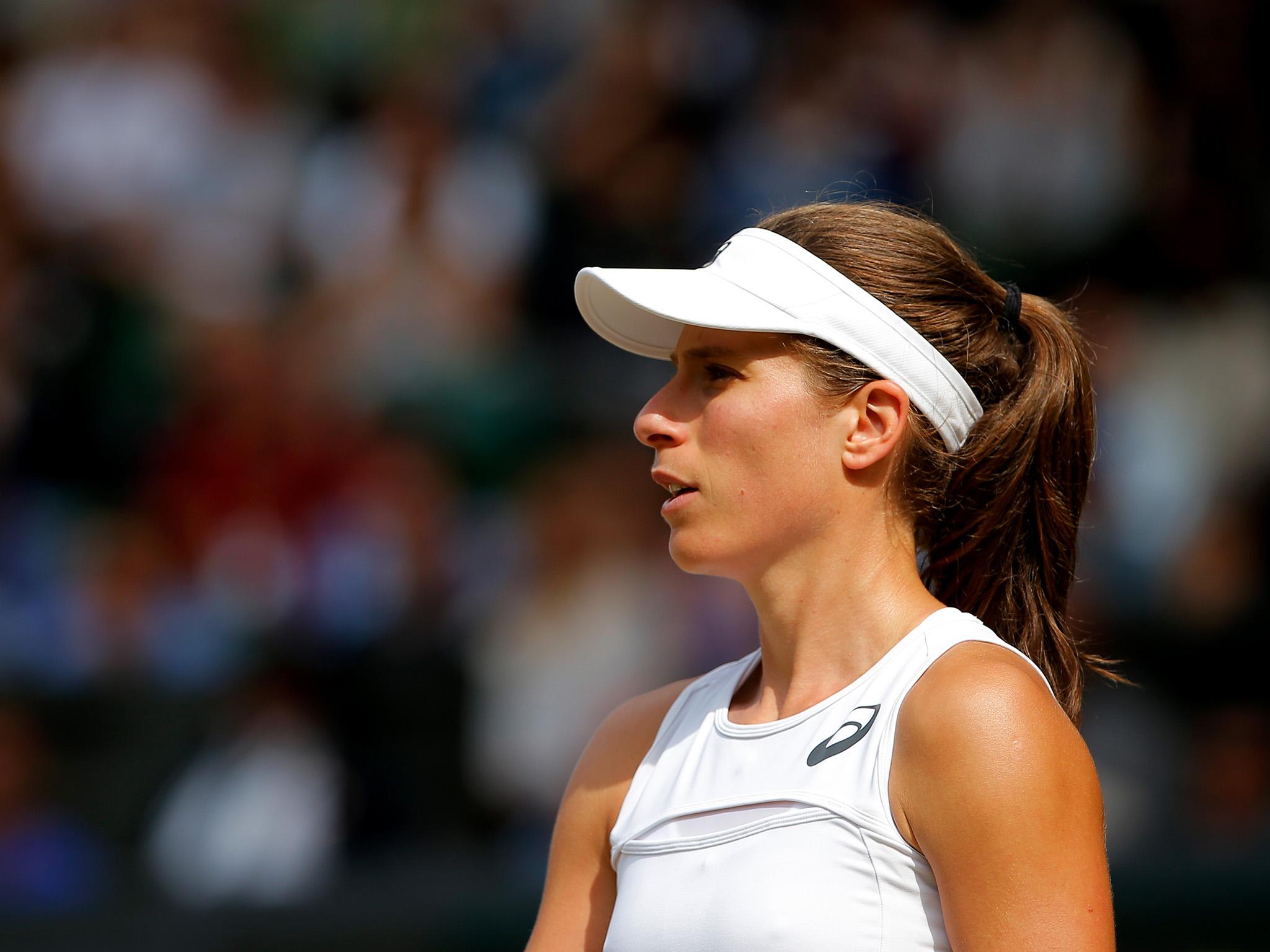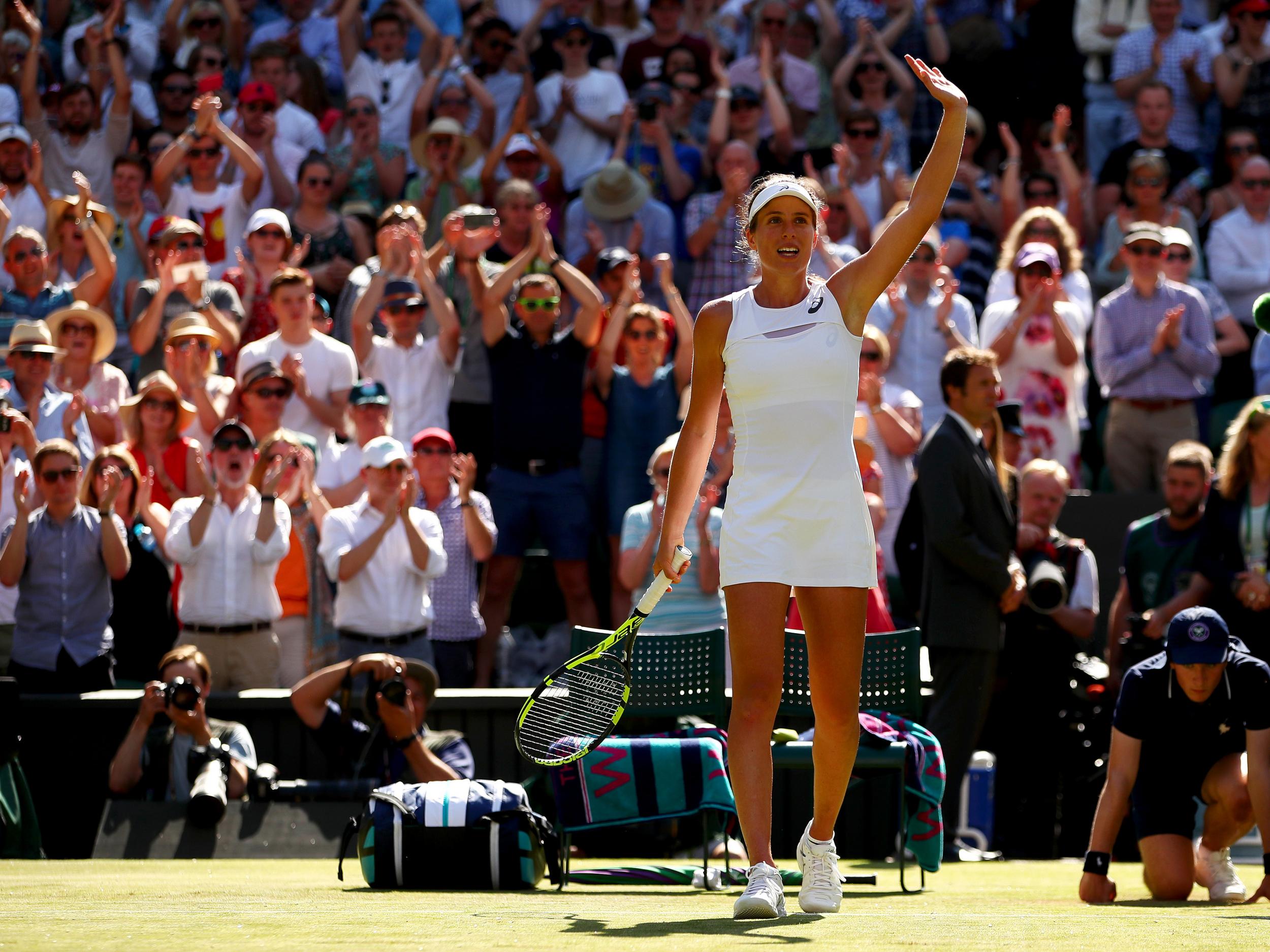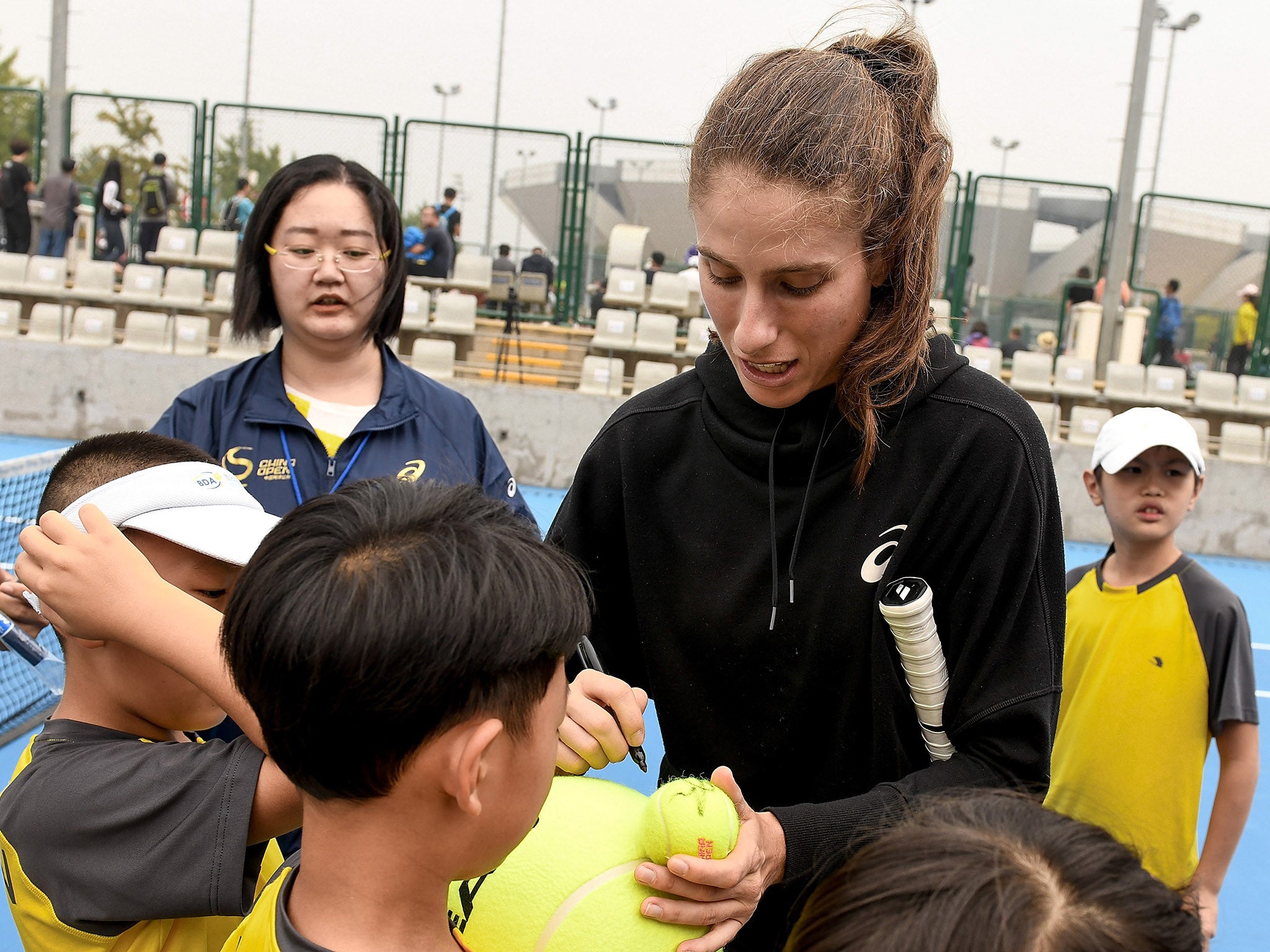How 2017 season helped Johanna Konta adjust to the spotlight as Britain's No 1 prepares for next chapter of her story
Interview: After a year of success, and the lessons that came with it, Konta is now looking forward to the new season as she eyes Grand Slam glory with her new coach

For the most part Johanna Konta has coped admirably with life in the public spotlight, but there was a moment this summer when the 26-year-old Briton admits that she “literally froze” when confronted with the enormity of the impact she had made.
Konta, who has been shortlisted for the BBC Sports Personality of the Year award after becoming the first British woman since 1978 to reach the Wimbledon singles semi-finals, was out shopping in a supermarket during the Championships when she caught sight of that day’s newspapers.
“I walked in and photographs of my face were over the whole news-stand,” Konta said. “I literally froze. I felt so self-conscious and so like: ‘Oh my goodness! Oh my goodness! Oh my goodness!’ I didn’t know where to look. I think I ended up standing behind a pillar until my boyfriend joined me. I was like: ‘Help me!’
“I didn’t hang around long enough to buy a copy. I don’t think I’d want to be looking at my face every morning, every day.”
Now, nevertheless, Konta recalls the episode as “a great experience”. Like Tim Henman and Andy Murray before her, she learned to turn the energy and excitement of the Wimbledon crowd to her advantage. Henman reserved most of his best Grand Slam performances for his home event, Murray has followed suit for more than a decade and this year it was Konta’s turn.
Until this summer the British No 1 had won only one match in her five appearances in the main draw at the All England Club, having prospered instead at the Australian and US Opens, but in 2017 she thrived on the support of her home crowd.
In reaching the semi-finals Konta won two of the best matches of the whole fortnight - a second-round epic against Donna Vekic and a pulsating quarter-final victory over Simona Halep, the then world No 2, which drew the BBC’s biggest live TV audience of the whole tournament. The legendary coach Nick Bollettieri described it as one of the best women’s matches he had ever seen.
Konta, who was born in Australia to Hungarian parents and did not move to Britain until she was 14, took time to earn widespread recognition in what is now her home country, but her smiling demeanour and whole-hearted attitude on the court won her legions of admirers this summer.
“Since Wimbledon, I have had the experience of people recognising me more,” she said. “I’ve been more aware of the general little hushed conversations or the little nudges people give to each other to point me out, or the staring. I’ve noticed that.”

Konta believes that her experiences in Australia earlier this year helped her to cope with the pressures at Wimbledon.
In January there was huge local interest in her both in Sydney, the city of her birth, when she won the title there, and in Melbourne, where she reached the quarter-finals of the Australian Open before losing to Serena Williams. Given the struggles of Australian women at their home Grand Slam event, it was no surprise that there were attempts by some locals to claim Konta as one of their own.
“I think part of the reason behind me coping better with the attention [at Wimbledon] was the experience and the maturity that I’ve gone through in the last couple of years,” she said. “I think if I hadn’t gone through Australia, if I hadn’t experienced Australia again this year, or even experienced my previous Wimbledons, it would have definitely affected me in a different way.”
She added: “Previously there had not necessarily been more pressure, but I had felt more stress. I guess it was about me finding my way on the tour, being the kind of player I want to be, and just being myself.

“I never really felt the pressure this year. I felt an immense amount of support and interest in my matches, in me being involved in the tournament. But I didn’t really perceive it as pressure.
“I saw it as interest, as something exciting. I felt people were with me on this journey at this tournament much more closely than at other events.”
Part of Konta’s coping strategy during Wimbledon was to avoid television news programmes. “During breakfast I think we would put on something like ‘The Mentalist’,” she said. “It was also a conscious thing not to look at newspapers or to really search for things on social media. I think in general, a nice little ‘detox’ is not a bad thing.”
For past Wimbledons, Konta either stayed at the National Tennis Centre at Roehampton or rented a flat locally. By this summer, however, she had her own apartment in London, having previously lived with her parents in Eastbourne. Being able to return home each evening during the Championships made a big difference.

“I really enjoy being at home, being in my flat, getting to spend time there,” she said. “Wherever you are able to create a sense of comfort, just a sense of routine and safety, I think that does give you the best chance of performing well.”
Indeed Konta admitted that she had “missed home” after Wimbledon, having spent nearly two months in Britain during the grass-court season.
After such a successful first seven months of the year, during which she won the biggest title of her career at the Miami Open, Konta faltered later in the campaign, winning only two matches in her last six tournaments before bringing her season to an early close because of a foot injury.
Having parted company with her coach, Wim Fissette, in October, she has now linked up with the American Michael Joyce, who worked with Maria Sharapova for six years. “Michael is a fantastic coach with a great pedigree and I’m really excited to work with him,” Konta said.
The Briton said that 2017 has been an “amazing” year, but there is no way that she will be resting on her laurels as she prepares for her first tournament of the new season in Brisbane in the first week of January. “I feel like there is so much more to come,” she said.
Join our commenting forum
Join thought-provoking conversations, follow other Independent readers and see their replies
Comments
Bookmark popover
Removed from bookmarks